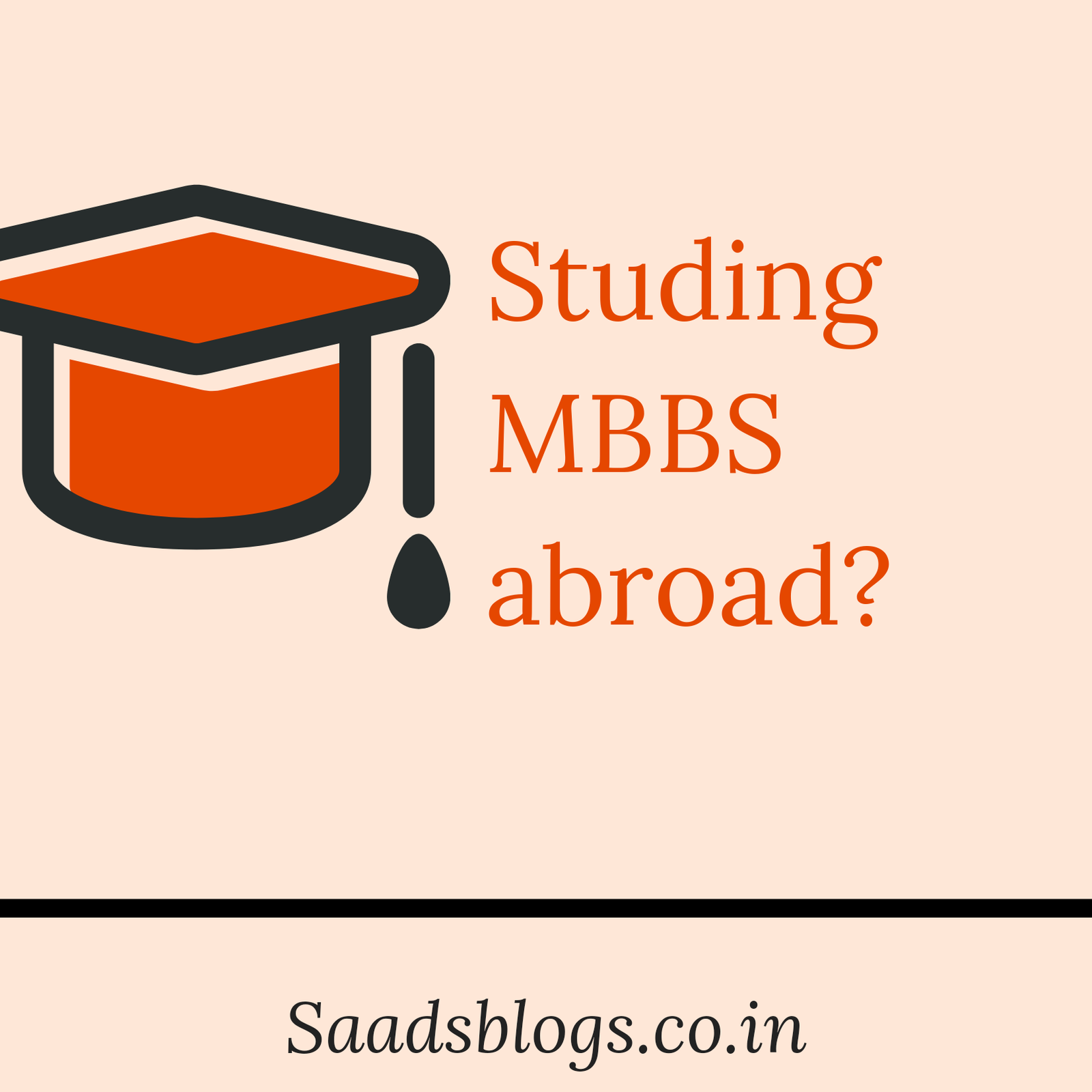Doing MBBS abroad?
Doing MBBS abroad?
Many students get MBBS seats in India, but some people opt for studying abroad after not getting a seat in India. There are many disadvantages and less advantages regarding doing MBBS abroad. Many students study in Russia, China, Ukraine, Poland and many more.
Disadvantages:
1.Language barrier:
Studying abroad means you need to learn foreign languages even though many universities offer to study MBBS in English. Language will become a barrier to interact with peers, teachers and patients.
2.MCI Screening Test:
After completing an MBBS degree from abroad it is compulsory to qualify for the Foreign Medical Graduates Examination FMGE, an examination approved by the MCI. Its pass percentage is around 20%. Many students take one or two years extra to clear this exam.
3.Internship Training:
During internships in hospitals, international students are not permitted to touch patients. In such cases, the internship takes the form of an observer-ship only. Students are not able to gain real experience because they only train on dummies and not dead bodies. These students have to undergo one more extra year of internship in Indian Medical colleges after FMGE.
4.Risk of Fraud Universities
There is no doubt that studying MBBS abroad has a number of merits, but it has also given rise to several fake universities or universities that are simply not up to the mark. These types of universities often claim to provide admission without any entrance exams. Students must be cautious and stay away from such scams. To address this concern, the Medical Council of India (MCI) has provided a list of top-notch universities that are recognized by the body and provide quality education to students applying for MBBS abroad.
5.Varying Standards of Study:
Each country will impart MBBS students with a unique experience. Hence, it is imperative to understand the curriculum before applying to any foreign university. Medical practices will also vary from university to university, alongside educational standards. Therefore, it is always advisable for students to conduct extensive research before applying to the universities of their choice. It would also be beneficial to speak to the alumni and university students during such times.
6.Different healthcare systems:
Healthcare systems can vary greatly from country to country. Students may not get the insight they need into the Indian healthcare system and may find it difficult to practice medicine in India. Additionally, medical practices and procedures may vary from country to country, which can lead to confusion and misunderstanding.
7.High Cost:
Studying MBBS from abroad can be very expensive. Tuition, living expenses, and other costs can add up to a significant amount. Some universities offer scholarships, but these are limited and highly competitive. Students may be dependent on loans or family financial support, which can be a heavy burden. Those universities which provide MBBS with less fees are not upto the mark.
8.Cultural Differences:
Studying an MBBS abroad can be a culturally different experience for students. Students may face difficulties adjusting to new cultures, lifestyles and environments. Cultural differences can also affect a student’s mental health and academic performance.
Advantage: Only advantage is some universities which are not upto the standards provide MBBS at very less fees when compared to management quota in India.

Opinion: Better to opt for an MBBS seat in India because in India medical colleges are far better than many colleges abroad. If someone won’t get a seat in the first attempt then it is better to try the second attempt. Very less number of FMGE(Foreign medical Graduates) candidates have got PG seats in India, this is because FMGE candidates are less trained than Indian Medical graduates.

